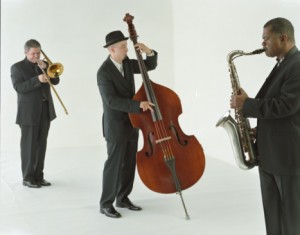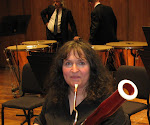Apparently they do. According to a recent post on Freakonomics blog, musicians' brains are rather highly developed! Check it out:

(Photo: Lifesize)
New research shows that musicians’ brains are highly developed in a way that makes the musicians alert, interested in learning, disposed to see the whole picture, calm, and playful. The same traits have previously been found among world-class athletes, top-level managers, and individuals who practice transcendental meditation.Using EEG‘s to measure brain activity, researchers concluded the following about the brains of musicians:
They have well-coordinated frontal lobes. Our frontal lobes are what we use for higher brain functions, such as planning and logical thinking. Another characteristic is that activity at a certain frequency, so-called alpha waves, dominates. Alpha waves occur when the brain puts together details into wholes. Yet another EEG measure shows that individuals with high mind brain development use their brain resources economically. They are alert and ready for action when it is functional to be so, but they are relaxed and adopt a wait-and-see attitude when that is functional.
*******************************************************************************
The original article in Science Daily also states the following:
Two questionnaires are also used to measure mind brain development. One has to do with moral reasoning. Those with high mind brain development score higher here. The other questionnaire targets what are called peak experiences. These are described as a higher level of consciousness. You have an intense feeling of happiness and harmony and of transcending limitations. Individuals with high mind brain development have many peak experiences.
Fred Travis emphasizes that everything we do changes our brain. Transcendental meditation and making music are activities people should devote themselves to if they wish to change their mind in the right direction. But you can make good progress by following common health recommendations: get enough sleep, work out physically, eat healthily, and don't do drugs. How you think also plays a role.
"If you are a very envious, angry, mean person and that's the way you think about people that's what's going to be strengthened in your brain. But if you are very expanded and open and supportive of others, there will be different connections," says Fred Travis.
Just imagine the brainpower of an open, supportive, health-conscious musician who practices transcendental meditation! And how about those former musicians who are now orchestra administrators - their brain activity measurements must be off the charts........
.






